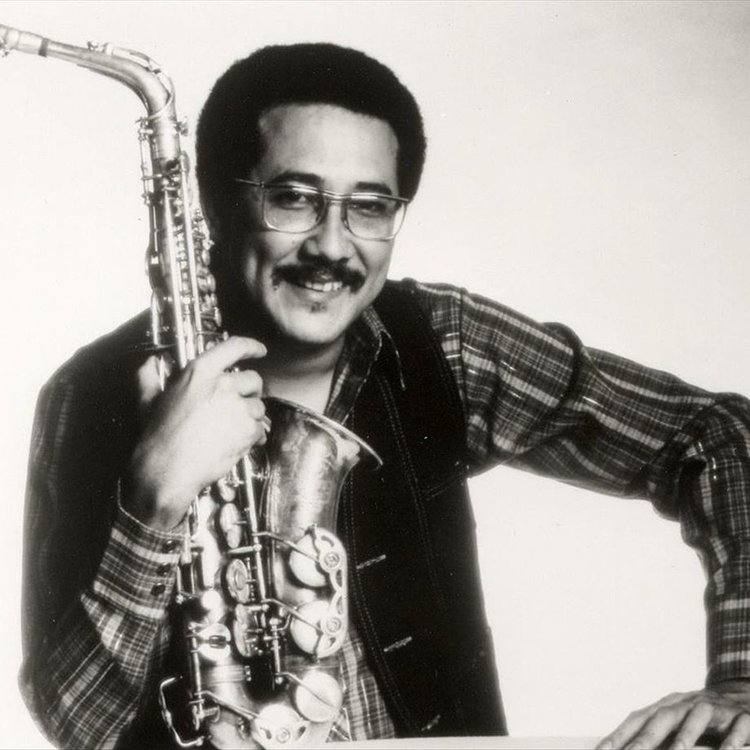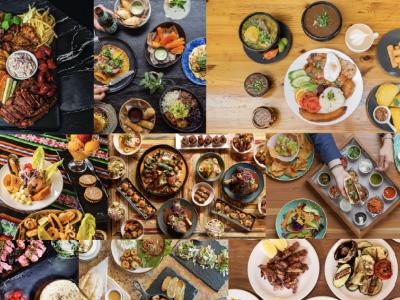Regarded as one of the greatest Latin jazz artists of our times, reedman/composer/arranger/bandleader/showman/fiction and non-fiction writer Francisco Jesús Rivera Figueras (better known as Paquito D’Rivera) was born on June 4, 1948, in Havana, Cuba.
Paquito’s first musical influence was Tito Rivera. The classical tenor saxophonist, conductor and educator gave him is first soprano sax lessons at the age of 5, but he went beyond the call of duty by taking up the clarinet in order to teach his prodigal son how to play such a difficult instrument. Two years later, Paquito became a child endorser of the Selmer brass instrument company (who Tito was a representative of) - "even a child can play a Selmer,” their ads proclaimed.
In 1957, at the age of 9, the child prodege conducted his first international tour, when he was hired to perform in Santo Domingo (known at the time as Ciudad Trujillo, in homage to the late Dominican dictator Rafael Trujillo. a.k.a. “Chapitas”), San Juan, and New York City, where he was booked at the Teatro Puerto Rico by Catalino Rolón, a promoter who was known to carry a large bag of money and a 45-caliber revolver in his trunk, por si las moscas. “For if the flies” is the literal translation of this Spanish phrase, despite its actual meaning: “Just in case”.
By the age of 10, Paquito was already performing the Weber Clarinet Concerto # 2 with the Havana Symphony, under the legendary baton of Gonzalo Roig. A couple of years later, he entered Havana’s García Caturla Conservatory, where he studied clarinet, composition and harmony in a classical setting. By the age of 15, he was already playing alongside the top jazz musicians in the Cuban capital. He even participated in the first recordings of a seminal combo led by Jesús “Chucho” Valdés, a young pianist who would become the greatest influence in Paquito’s career.
In 1967, after spending some unhappy years in an army band as part of what he describes as “the longest compulsory military service in the planet”, Paquito became the lead alto saxophonist of the Orquesta Cubana de Música Moderna (OCMM), an all-star big band initially led by Armando Roemu, one of the first jazz saxophonists in Cuba’s musical history. Although it was composed of many of the island’s best musicians, the OCMM was soon reduced by the cultural commissars to a backup orchestra for singers, despite the objections expressed by Paquito, who ended up reluctantly conducting the ill-fated band for a couple of years.
Nevertheless, Paquito’s career took a drastic turn for the better in 1973, when he became one of the cofounders of Irakere, the 11-piece brainchild of Chucho Valdés and the most important Cuban jazz group (or the most important Latin American jazz group, period) of the 20th century. In fact, he played baritone in Irakere’s first recording, “Bacalao con pan”, an innovative batúm-batá rhythm that radically changed the stylistic course of Cuban popular music.
Paquito remembers how Irakere “revolutionized Latin music around the world by having the wind players play bebop lines backed by the Afro-Cuban thing in the percussion… we used to play a very danceable music, but when Irakere stated playing, nobody danced – everyone went to see the group, to admire the soloists”. Ranging seamlessly between acoustic and electronic music, Irakere’s sound combined incredible technique and wide conceptual enlightenment with ferocious groove tendencies.
Inevitably, Paquito had grown increasingly frustrated with the Cuban regime’s cultural intolerable and political repression. In 1980, during an international tour, he decided to vote with his feed in Madrid. Shortly thereafter, he made his way to New York, where he became the single most important jazzman to escape from the former Soviet block, while demonstrating his commitment to Dizzy Gillespie’s vision of unifying the musics of the Americas.
Paquito became the only US-based Latin bandleader who was “playing real Latin jazz”, according to Mario Bauzá, a founding father of said musical genre. What Bauzá meant is that Paquito widened the mostly Cuban-oriented repertoire of Latin jazz by introducing his multinational fans to previously unexplored musical territories (i.e. Venezuelan vals, Argentine milonga, Brazilian chorinho, Uruguayan candomblé, Puerto Rican bomba).
While covering a wide range of formats (solo clarinet, sax quartet, big band, etc), Paquito helped to launch the solo careers of many talented sidemen, such as Jorge Dalto, Claudio Roditi, Michel Camilo, Giovanni Hidalgo, David Sánchez, and Danilo Pérez. As an imaginative producer, he must be credited for rescuing Chucho’s venerable progenitor, Ramón “Bebo” Valdés, from obscurity, as well as introducing the preeminent trombonist Juan Pablo Torres to the U.S. jazz community.
Last but not least, Paquito was recently reunited with Chucho in a monumental recording (“I missed you too”, Sunnyside, 2022), sixty years after they initially met at the Havanese suburb of Mariano. It would be appropriate to conclude this chronicle by quoting the Cuban composer and guitarist Sergio García Marroz: ”No one is the same after meeting Paquito, and when God eventually has the pleasure to meet him in person, he shouldn’t take him too lightly because as we already know, Paquito has a diabolical sense of humour”.















